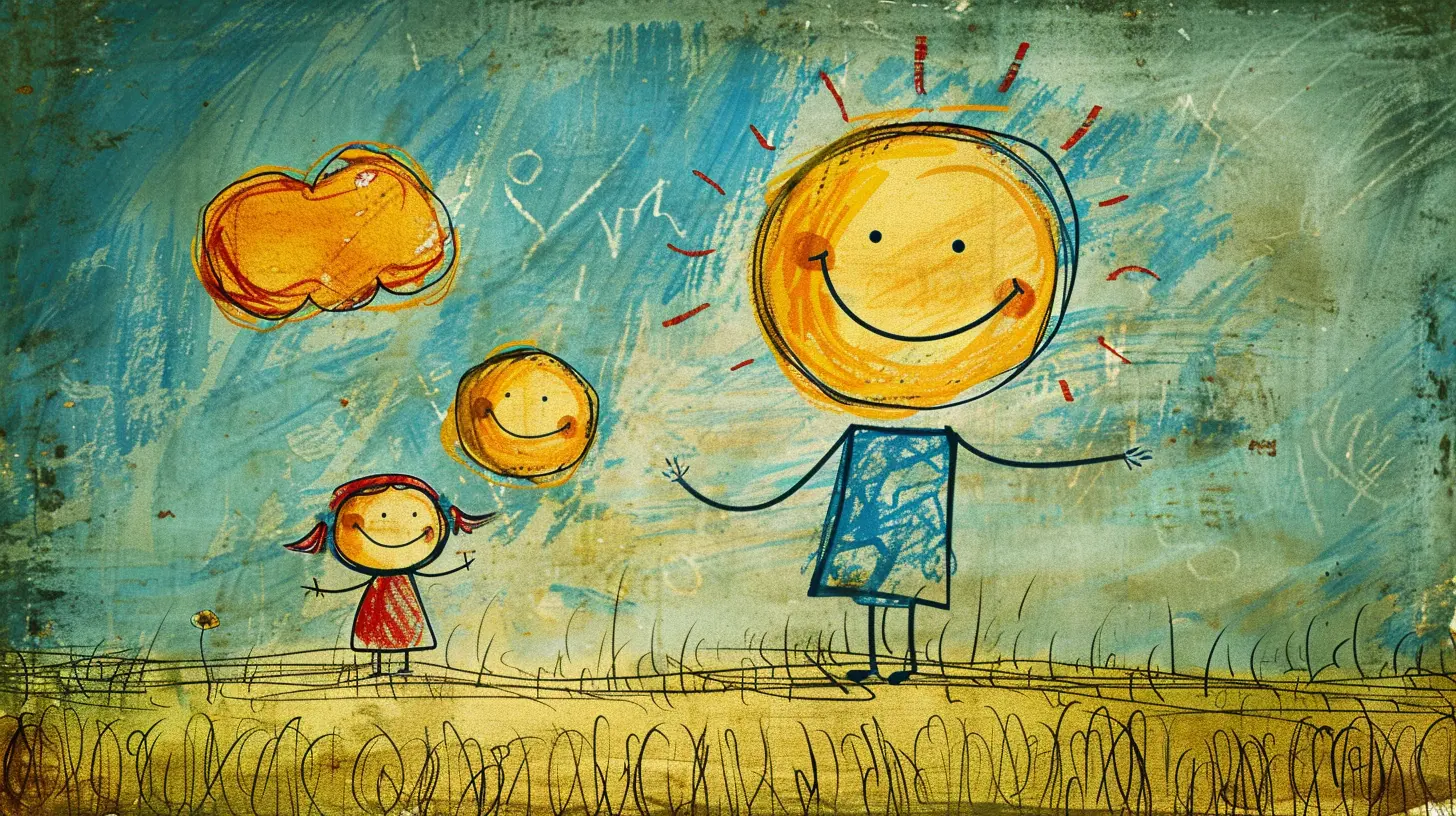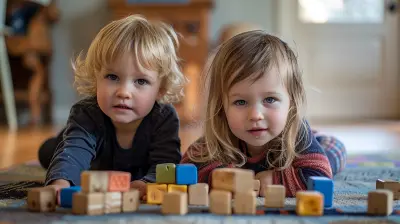The Power of Positive Reinforcement in Cultivating Empathy
28 May 2025
Parenting is a rollercoaster ride filled with highs, lows, and plenty of unexpected twists. As parents, one of our biggest goals is to raise kind, compassionate, and understanding kids. But how do we nurture these qualities in an overstimulated, fast-paced world?
Enter positive reinforcement—a game-changer in helping kids not only behave better but also develop genuine empathy for others. Think of it as watering a plant; instead of focusing on what’s wrong, you’re feeding the good and letting it grow.
So, how exactly does positive reinforcement help cultivate empathy? Let’s dive in! 
What Is Positive Reinforcement?
Put simply, positive reinforcement is rewarding desired behaviors to encourage them in the future. When kids do something kind, thoughtful, or empathetic, acknowledging and rewarding that behavior makes it more likely to stick. Instead of punishing mistakes, this approach focuses on highlighting and encouraging the good.For example, if your toddler shares their toy with a sibling, instead of just moving on, you might say, "That was so kind of you to share! That makes your brother really happy!" This small moment of praise reinforces the action, making them more likely to repeat it.
Psychologists have long studied reinforcement, and research shows that positive reinforcement is far more effective than punishment in shaping long-term behavior. So why not use it to build empathy too? 
Why Is Empathy So Important for Kids?
Empathy is more than just understanding someone else's feelings—it's about truly feeling with them. It helps kids navigate relationships, resolve conflicts, and become compassionate adults.A child with strong empathy skills will:
✅ Make friends more easily
✅ Handle emotions better
✅ Be more kind and caring
✅ Stand up for others in need
Empathy isn’t something kids are just born with—it needs to be nurtured. And this is where positive reinforcement comes in! 
How Positive Reinforcement Encourages Empathy
Using positive reinforcement to cultivate empathy means actively recognizing and rewarding kind, considerate behavior. Let’s break down how this works in everyday parenting.1. Praise Acts of Kindness
Children thrive on encouragement. When they do something thoughtful—whether it’s comforting a crying friend, helping a sibling, or showing patience—point it out!💡 Example:
Instead of saying, "Good job," try something more specific:
"I love how you helped your friend when she was feeling sad. That was really kind of you!"
By linking their action to empathy, kids internalize it as a valuable trait.
2. Use Tangible Rewards (But Wisely!)
While verbal praise is powerful, sometimes a little extra incentive can help reinforce the lesson. This doesn’t mean bribing kids with candy every time they do something nice, but simple rewards can go a long way.💡 Example:
If your child consistently shows kindness throughout the week, a "Kindness Jar" can be a fun way to reinforce it. Every time they do something thoughtful, they can add a marble or sticker to the jar. Once it’s full, they earn a special activity like a movie night or a fun outing.
This makes empathy visible and rewarding, keeping them motivated to be kind.
3. Model Empathy Yourself
Kids are like little sponges—they absorb what we do more than what we say. If they see you being compassionate, they’ll mirror that behavior.💡 Example:
When you express kindness in daily life, narrate it for them:
"I’m holding the door open for this person because it’s polite and makes their day easier!"
When kids see empathy in action, they learn that kindness isn’t just a concept—it’s a way of life.
4. Encourage Perspective-Taking
A big part of empathy is understanding how others feel. You can encourage this by asking questions that help kids put themselves in someone else's shoes.💡 Example:
When your child sees a sad friend, ask:
"How do you think they’re feeling? What could you do to help?"
This small habit helps develop emotional intelligence, making kindness their default mode.
5. Create an "Empathy Challenge"
A great way to make empathy fun is to turn it into a game. Set up a family Empathy Challenge where everyone focuses on acts of kindness for a week or a month.💡 Example:
Each day, your child can complete small acts of kindness like:
✅ Giving someone a compliment
✅ Helping a friend or sibling
✅ Writing a nice note to a teacher
At the end of the challenge, celebrate their efforts with praise or a fun family activity. 
Avoiding Common Pitfalls
Even though positive reinforcement is an amazing tool, it’s important to use it wisely. Here are some things to keep in mind:🚫 Don’t overdo material rewards. While occasional incentives can be great, the ultimate goal is for kids to be kind because it feels right, not just for a reward.
🚫 Be specific with praise. Saying "Good job!" is nice, but "That was really thoughtful of you to check on your friend when they were sad!" helps them connect the dots.
🚫 Patience is key. Empathy takes time to develop. Keep reinforcing it, even if it doesn’t seem to stick right away. You’re planting seeds that will grow over time.
The Long-Term Impact of Positive Reinforcement
The beauty of positive reinforcement is that it doesn’t just shape behavior—it shapes character. Kids raised with this approach grow into adults who:🥰 Naturally think of others
💡 Handle conflict with understanding
🌍 Contribute to a kinder, more compassionate world
And isn’t that what we all want?
When we focus on nurturing empathy through positive reinforcement, we’re doing more than just preventing tantrums or encouraging good manners—we’re shaping the future, one kind child at a time.
So, the next time your little one shares their snack, comforts a friend, or offers a helping hand, don’t just let it pass. Acknowledge it, reinforce it, and watch as their kindness grows.
Because the world could use a little more empathy, and it starts right at home.
all images in this post were generated using AI tools
Category:
Teaching EmpathyAuthor:

Tara Henson
Discussion
rate this article
3 comments
Alanna Stone
Empathy blooms through positive reinforcement.
June 20, 2025 at 3:25 AM

Tara Henson
Thank you! Absolutely, positive reinforcement creates a nurturing environment that fosters empathy and understanding.
Thornefield McCallum
This article beautifully highlights the role of positive reinforcement in fostering empathy in children. By encouraging compassionate behavior, parents can nurture emotional intelligence and stronger connections, shaping a kinder future generation.
May 31, 2025 at 3:08 AM

Tara Henson
Thank you for your kind words! I'm glad the article resonated with you. Positive reinforcement truly plays a vital role in developing empathy in children.
Wilder Jordan
Empathy blooms where praise plants the seeds of kindness!
May 29, 2025 at 3:11 AM

Tara Henson
Thank you for your insightful comment! Indeed, positive reinforcement is essential for nurturing empathy and kindness in our interactions.



